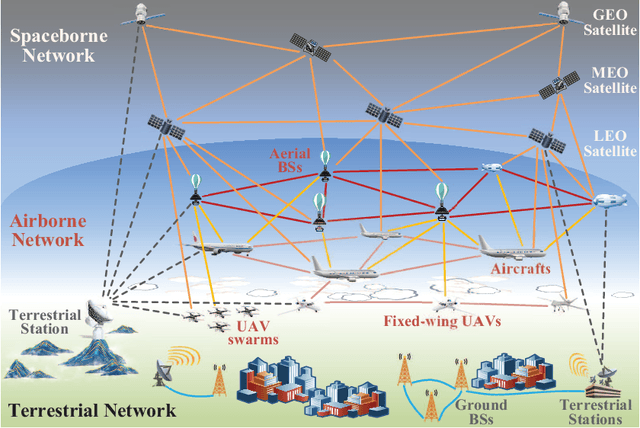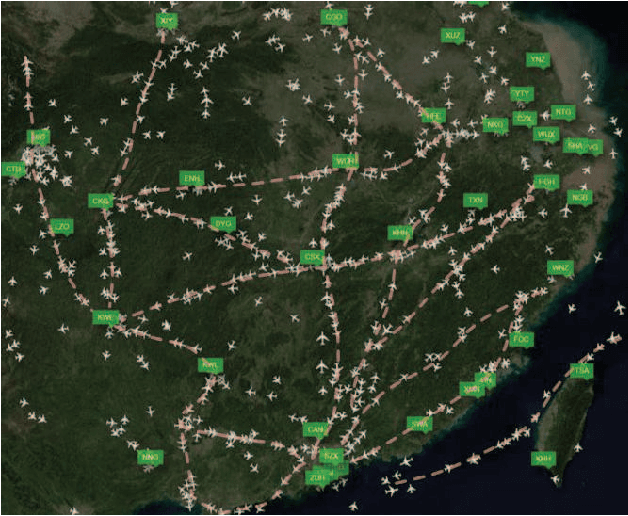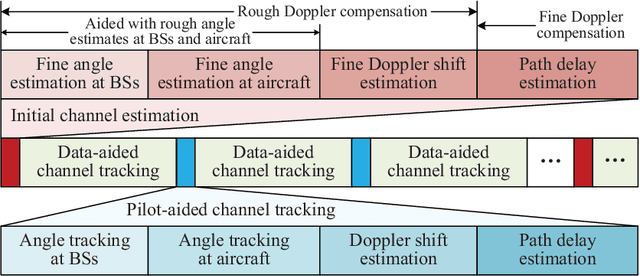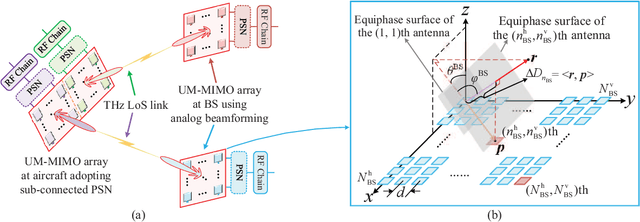Terahertz Ultra-Massive MIMO-Based Aeronautical Communications in Space-Air-Ground Integrated Networks
Paper and Code
Mar 03, 2021



The emerging space-air-ground integrated network has attracted intensive research and necessitates reliable and efficient aeronautical communications. This paper investigates terahertz Ultra-Massive (UM)-MIMO-based aeronautical communications and proposes an effective channel estimation and tracking scheme, which can solve the performance degradation problem caused by the unique {\emph{triple delay-beam-Doppler squint effects}} of aeronautical terahertz UM-MIMO channels. Specifically, based on the rough angle estimates acquired from navigation information, an initial aeronautical link is established, where the delay-beam squint at transceiver can be significantly mitigated by employing a Grouping True-Time Delay Unit (GTTDU) module (e.g., the designed {\emph{Rotman lens}}-based GTTDU module). According to the proposed prior-aided iterative angle estimation algorithm, azimuth/elevation angles can be estimated, and these angles are adopted to achieve precise beam-alignment and refine GTTDU module for further eliminating delay-beam squint. Doppler shifts can be subsequently estimated using the proposed prior-aided iterative Doppler shift estimation algorithm. On this basis, path delays and channel gains can be estimated accurately, where the Doppler squint can be effectively attenuated via compensation process. For data transmission, a data-aided decision-directed based channel tracking algorithm is developed to track the beam-aligned effective channels. When the data-aided channel tracking is invalid, angles will be re-estimated at the pilot-aided channel tracking stage with an equivalent sparse digital array, where angle ambiguity can be resolved based on the previously estimated angles. The simulation results and the derived Cram\'{e}r-Rao lower bounds verify the effectiveness of our solution.
 Add to Chrome
Add to Chrome Add to Firefox
Add to Firefox Add to Edge
Add to Edge